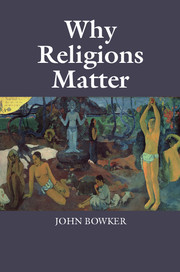Book contents
2 - The paradox of religions
Published online by Cambridge University Press: 05 April 2015
Summary
In the summer of 2008, The Independent ran a promotion to encourage the better understanding of religion. It was based on a series of short introductions to different religions (published by Oxford University Press) and on my Oxford Dictionary of World Religions. I was therefore invited to write two further ‘short introductions’ to the promotion.
I began these with a reminder of the trenchant and vigorous attacks on religion that were being made at the time by such people as Richard Dawkins, Christopher Hitchens, Sam Harris and Daniel Dennett. The abolition of religion was once again on the agenda. So the questions in which The Independent was interested were these: what is the point of taking religions seriously, and why do we need to understand religions? After all, we no longer believe many of the false, not to say absurd, claims made by religions in the past. For example, we no longer believe that the world is balanced on a pile of turtles, or that the sun jumps into a chariot each morning and drives across the sky. Why take seriously the many other religious beliefs that belong to the pre-rational infancy of the human race? Crick’s allusion (in the Introduction) to Alice in Wonderland may remind us of the White Queen’s boast that sometimes she was able to believe as many as six impossible things before breakfast. Religious believers, so we are told by sceptics, multiply six by about six billion and believe them all the time.
- Type
- Chapter
- Information
- Why Religions Matter , pp. 9 - 44Publisher: Cambridge University PressPrint publication year: 2015



